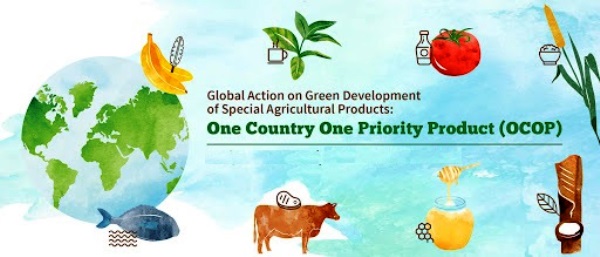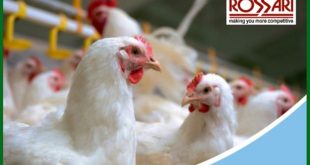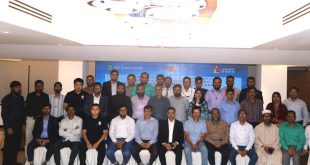 International Desk: Countries across Asia and the Pacific are joining an initiative to promote and showcase the ‘best of the best’ of their special agricultural products – a move designed to ensure a high level of participation from smallholders to producers to exporters and others all along the value chain.
International Desk: Countries across Asia and the Pacific are joining an initiative to promote and showcase the ‘best of the best’ of their special agricultural products – a move designed to ensure a high level of participation from smallholders to producers to exporters and others all along the value chain.
To help build momentum, the Food and Agriculture Organization of the United Nations (FAO) today launched the ‘Global Action on Green Development of Special Agricultural Products: One Country One Priority Product (OCOP) in Asia and the Pacific,’ encouraging countries of the Region to join the initiative, developing green value chains and promoting their special agricultural products internationally.
Close to 250 participants from countries across Asia and the Pacific attended the virtual launch, including Ministers of Agriculture, senior government officials, technical experts, and representatives of development partners, research institutes, and private sector. Specialists from other regions of the world also joined the event.
OCOP was launched globally by the FAO Director-General, QU Dongyu, in September 2021. The launch of this regional, Asia-Pacific Global Action of OCOP aims to develop green and sustainable value chains for special agricultural products, while supporting smallholders and family farmers reap the full benefits of access to a global market, ultimately helping the transformation of current agrifood systems. The ultimate aim is to achieve better production, better nutrition, a better environment and a better life for all – leaving no one behind.
In an opening address, Beth Bechdol, FAO Deputy Director-General, outlined the many specialty agricultural products the region has to offer to the world. “The Asia-Pacific region is special, home to more than 50 percent of the world’s population, where agricultural development and rural livelihoods are a top priority – a region with a long and rich history of agricultural development,” she said, adding that participation in OCOP was a great opportunity for all countries in the region.
High-level participation
The regional OCOP launch event included the participation and presentations of Government Ministers from China, Indonesia, the Lao People’s Democratic Republic, Samoa and Thailand. Ministerial-level interventions were also made on behalf of their governments by participants from Bhutan and the Solomon Islands.
Resource partners from the International Centre for Integrated Mountain Development, University of Western Australia, South Asian Association for Regional Cooperation Agriculture Centre, Grow Asia and International Trade Centre also joined the launch. All participants highlighted the potential benefits of the Global Action and signaled their commitments to the OCOP initiative.
The Government Ministers from Asia and the Pacific nations spoke highly of the special agricultural products their countries and sub-regions can offer the world – products that go well beyond the staple foods that most people consume.
Examples given were vegetables and herbs that have multiple values and uses such as cooking, traditional medicines, food supplements and those which can help to conserve biodiversity and support farming communities. A greater focus on export through horticulture and cash crops was also discussed as was the promotion of quinoa, a highly nutritious food.
Participants also noted that through leveraging OCOP, it would be possible to gain greater access to inputs such as improved varieties; investing in climate-smart technology, land management, farm mechanization, and equally important, market access and trade facilitation.
Asia and the Pacific – a region with more to offer than just rice and fish
FAO Senior Policy Officer and Regional Lead on OCOP Xuan Li presented the regional OCOP implementation plan for Asia and the Pacific, stating that work and partnership-building is well underway. She noted that the OCOP initiative builds upon the One Village One Product (OVOP) experience from countries across the region, which emphasized that the cultivation of various types of business entities and integrated green agriculture were keys to success.
The OCOP initiative places significant emphasis on developing Special Agricultural Products (SAPs) which have unique qualities and special characteristics associated with geographical locations, farming practices and cultural heritages. In some cases, these SAPs are important examples of underutilized species which have not received the same attention as commonly produced agricultural products.
“Compared to staple food crops, SAPs have not yet fully benefited from agricultural and rural development programmes, but they can significantly contribute to ensuring food security and healthy diets, supporting sustainable development and improving farmers’ livelihoods and economic growth, while protecting the environment and biodiversity,” said Jong-Jin Kim, FAO Assistant Director-General and Regional Representative for Asia and the Pacific.
“Because they have this great potential, we have seen the keen interest shown here by FAO Members and others in this region. It is a testament to the great possibilities of OCOP in Asia and the Pacific,” he added.
Kim said he believed under the strong leadership of the governments, this important initiative, by promoting food system transformation and rural development in the region, could significantly contribute to achieving the 2030 Agenda – in particular SDG 1 (End poverty), SDG2 (Zero hunger) and SDG10 (Reduce inequalities).
For more details: https://www.fao.org/asiapacific/news/detail-events/en/c/1507768/
 Agrinews24 কৃষির সাথে, কৃষকের পাশে
Agrinews24 কৃষির সাথে, কৃষকের পাশে





















